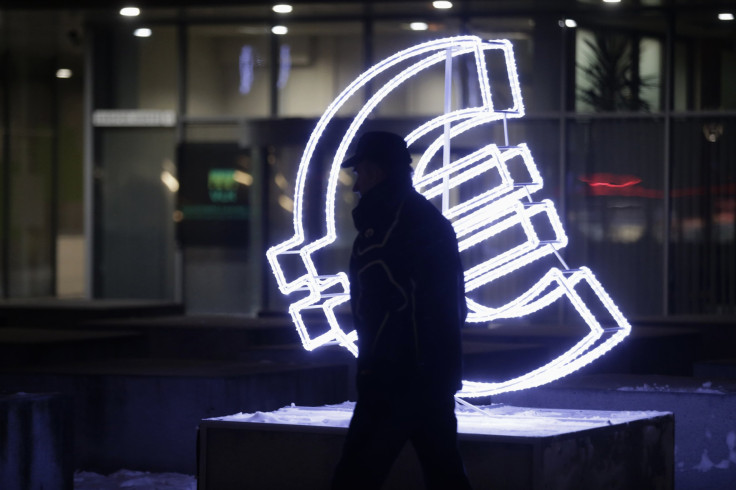Euro Zone Starts 2015 Better Than Thought As Firms Slash Prices: PMIs

(Reuters) - The euro zone economy began 2015 in better shape than expected but firms were forced to slash prices, surveys showed on Friday, a day after the European Central Bank announced a money-printing plan in a bid to revive inflation.
Firms across the continent have been cutting prices at the fastest rate in nearly five years this month, in a trend that backs up the ECB's decision on Thursday to embark on a program of quantitative easing.
Markit's Eurozone Composite Flash Purchasing Managers' Index, based on surveys of thousands of companies and seen as a good growth indicator, bounced to a five-month high of 52.2 from December's 51.4.
That beat the forecast in a Reuters poll for a more modest rise to 51.8 and marked its 19th month above the 50 level that separates growth from contraction.
"We are moving away from the lows towards the end of last year, but the actual rate of growth being signaled is still moderate," said Rob Dobson, senior economist at survey compiler Markit.
Dobson said the PMIs pointed to first-quarter growth of 0.2 percent, slightly worse than the 0.3 percent predicted in a Reuters poll last week.
But the index for prices charged slumped to 46.9, its lowest since February 2010, and comes after official data showed consumer prices fell 0.2 percent in December, the first negative print since the depths of the financial crisis in 2009.
That discounting helped drive the services PMI up to 52.3 from 51.6, beating forecasts for 52.0, while the factory PMI rose as expected to 51.0 from 50.6.
The PMI for Germany's private sector was less than a point above November's 17-month low and the downturn deepened in France, the bloc's second-biggest economy.
Also casting a shadow over February's outlook, demand for manufactured goods barely increased while service firms were only able to build up the smallest of order backlogs.
"I wouldn't expect there to be a significant improvement in February. We might see growth continue to improve slowly but we are unlikely to see a significant upturn," Dobson said.
© Copyright IBTimes 2024. All rights reserved.




















